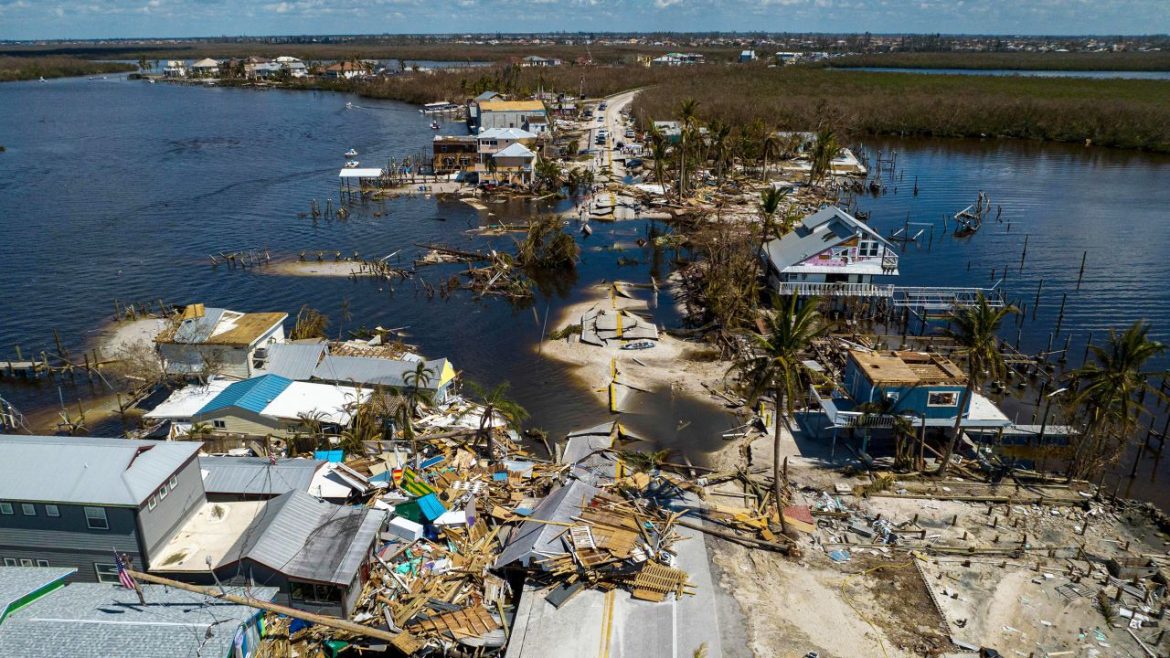A new report by CarbonBrief has shown that at least 15,700 people have so far been killed in extreme weather disasters in Africa in 2023 while a further 34 million people have been affected by extremes.
The African continent is responsible for less than 3% of the world’s total greenhouse gas emissions, yet its over 1.4 billion population continues to grapple with more frequent climate-related disasters such as rising sea levels, flooding and hot weather, all of which have led to massive loss of lives and property.
The report which combined disaster data, humanitarian reports and local news stories to create a more complete picture of the scale of extreme weather impacts in Africa in 2023 to date, showed that Libya’s “medicane”-fuelled floods, which killed more than 11,300 people in September was by far the most lethal.
According to the report, the countries most vulnerable to climate disasters are those that have low “climate readiness” – measured by examining the threats that climate change poses to a country and that country’s ability to protect its citizens – and high levels of “fragility” – the likelihood that a country will experience societal collapse in the event of a disaster.
To come up with the report, Carbon Brief also spoke to scientists about how these events could be linked to climate change and other factors, including high vulnerability and a lack of preparedness – and why so many of Africa’s extreme weather events go unrecorded and unreported.
The report found that Africa has the lowest density of weather stations out of any continent – making it difficult to know the extent to which extreme weather is happening and how it might be shifting because of climate change.
A climate scientist from Kenya was quoted in the report as describing the situation as “extremely worrying”, noting that the toll of extreme weather on Africa’s people in 2023 is a stark reminder of why the developed world must take responsibility for the “loss and damage” caused by climate change.
Read also: Report: EU must cut carbon emissions three times faster to meet targets
According to an analysis from the International Rescue Committee (IRC) and the World Resources Institute (WRI), seven of the 10 countries most vulnerable to climate disasters are in Africa. In 2023, the report found that every part of the continent was affected by extreme weather disasters, ranging from catastrophic flooding in Libya to intense heat in Malawi.
To study these events, Carbon Brief combined UN humanitarian reports and local news stories with data from the Emergency Events Database (EM-DAT), which was launched in 1988 by the Centre for Research on the Epidemiology of Disasters (CRED) in Belgium. Specifically, the report also found that:
- More than 3,000 people were killed in flash floods in the Democratic Republic of the Congo and Rwanda in May. Scientists were unable to assess the role of climate change in the disaster because of a lack of functioning weather stations recording data in the region.
- At least 860 people were killed in floods and mudslides in February during Tropical Cyclone Freddy, the longest-lasting cyclone on record affecting Madagascar, Mozambique, Mauritius, Malawi, Réunion and Zimbabwe.
More than 29 million people continue to face unrelenting drought conditions across Ethiopia, Somalia, Kenya, Djibouti, Mauritania and Niger. - Southern African countries have sweltered in a months-long winter heatwave, leaving many facing summer-like conditions for a continuous year.
Story was adapted from Carbon Brief.
